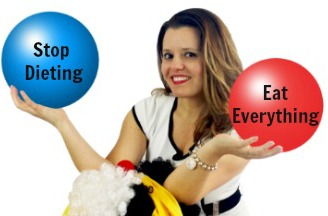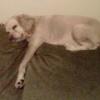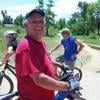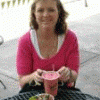Yes you can drink and eat at the same meal time

There is no concern in flushing the food through the gastric band when the area above the band is empty.
Recent research has provided a better understanding of the how the gastric band works, conducted by CORE in Melbourne. We now understand that food only remains in the area above the gastric band for approximately 1 minute, it is then pushed through the gastric band via the oesophageal pressure. This takes about 3 to 6 peristaltic motions.
You can eat and drink at the same time; however it is essential you allow sufficient time between swallows to ensure the area above the gastric band is completely empty, before you consume a sip of your drink.
However, be careful to not drink liquids with your meal to assist the movement of food through the gastric band, this is cheating. Focus on tasting and enjoying the flavours and textures which will enable your saliva to soften the food and make it easier to grind the food into a past prior to swallowing.
Many people feed back to me that they often do not wait long enough between mouthfuls and take a sip too early and get into trouble. So you may wish to consider an alternative option to not drink and eat during your meal, but rather eat your meal and begin drinking again once you feel comfortable.
Choose either option, or blend them both when it suits you as summarized below:
Very interesting, and completely opposite to what I heard at seminars at the Obesity Help conference in Seattle last July. Several bariatric professionals, including Ross McMahon, MD, medical director of Swedish Weight Loss Services, stated that failure to separate intake liquids and solids (in other words, drinking while you eat) is one of the most common causes of failure to lose weight in all types of bariatric patients (band, bypass, sleeve, DS).
I would like to see the actual data that supports this information. Not only does this go against what every bariatric surgeon I know of recommend, but as elcee stated it also contradicts the sensations that anyone with the band can relate to having gone through.
I hate to sound like such a skeptic, but unless someone can post actual proof and data, I'm not buying it.
i agree with hed and jean and elcee. i will just do what my dr suggests as well as my nutritionist. and do what works for me
i have read quite a few articles here in the uk which also supports this theory about how quickly food passes through the pouch. It would also explain why a lot of people can drink when they eat .. like all new information it will be argued about for a good while yet .. Some people can still eat large amounts of food and yet their pouch isnt distended or their band particularly loose so i think there is clear evidence around that it is possible that this is just as valid a theory than any other ..
This whole question of how the band works and how long it takes for the food to pass through is still very confusing and I do not believe that it has yet been fully answered. It does make more sense that the food passes through quickly as when you eat a bite and it gets stuck you feel it instantly.
However if the food is passing through that quickly what causes the pain and discomfort if you have eaten too much?
And also how is it possible to PB sometimes for hours afterwards totally undigested food that is not mixed with stomach acid if the food has already passed into your stomach?
That's quite a leap and reckless to write about this...I believe it is not advisable to challenge the instructions most every one of us have received from our individual doctors about NOT eating and drinking at the same time.
I would challenge your statements and say that it would take many more studies on this same topic to statistically validate the accuracy of the information you shared. Anyone who has a background in statistical evaluation knows that ALL studies are flawed in one aspect or another. ONE study which publishes their findings is not the "gold card determiner" of the accuracy of the rules as we know them to be.
Please validate your writings with citing additional sources and studies prior to telling ALL if us to change the rules...BTW, when and from what university have you earned your MD degree?????
I will also continue to follow the instructions given to me by my surgeon; he seems to be quite knowledgeable on the topic, and most importantly, we get good results with weight loss if we adhere to those instructions!
There is no concern in flushing the food through the gastric band when the area above the band is empty.
Recent research has provided a better understanding of the how the gastric band works, conducted by CORE in Melbourne. We now understand that food only remains in the area above the gastric band for approximately 1 minute, it is then pushed through the gastric band via the oesophageal pressure. This takes about 3 to 6 peristaltic motions.
You can eat and drink at the same time; however it is essential you allow sufficient time between swallows to ensure the area above the gastric band is completely empty, before you consume a sip of your drink.
However, be careful to not drink liquids with your meal to assist the movement of food through the gastric band, this is cheating. Focus on tasting and enjoying the flavours and textures which will enable your saliva to soften the food and make it easier to grind the food into a past prior to swallowing.
Many people feed back to me that they often do not wait long enough between mouthfuls and take a sip too early and get into trouble. So you may wish to consider an alternative option to not drink and eat during your meal, but rather eat your meal and begin drinking again once you feel comfortable.
Choose either option, or blend them both when it suits you as summarized below:
1. Wait enough time between mouthfuls before consuming a sip of your drink2. Consume a glass of Water before the meal, eat your meal then begin drinking again once you feel comfortable.
That's quite a leap and reckless to write about this...I believe it is not advisable to challenge the instructions most every one of us have received from our individual doctors about NOT eating and drinking at the same time.
I would challenge your statements and say that it would take many more studies on this same topic to statistically validate the accuracy of the information you shared. Anyone who has a background in statistical evaluation knows that ALL studies are flawed in one aspect or another. ONE study which publishes their findings is not the "gold card determiner" of the accuracy of the rules as we know them to be.
Please validate your writings with citing additional sources and studies prior to telling ALL if us to change the rules...BTW, when and from what university have you earned your MD degree?????
I will also continue to follow the instructions given to me by my surgeon; he seems to be quite knowledgeable on the topic, and most importantly, we get good results with weight loss if we adhere to those instructions!
From my personal experience:
I had an Upper GI and esophogram with food last September ordered by my surgeon. I got the watch the entire process of the food going down my esophagus, into the pouch, then into the larger stomach.
It really did only take a minute or two for the food to clear the pouch. When instructed to take a larger bite and not chew so well, I experienced some reflux into my esophagus from the pouch that I could feel, and we could also see. Then we watched that food leave the pouch.
My opinions and ponderings:
I agree that the food empties rather quickly. If some is stuck above/in the stoma, that is what comes up undigested. For me, that is usually not a large amount, just a few bites.
I don't understand why "they" haven't figured out how long it takes for a banded pouch to empty. A few Upper GIs with food and they are done. Why is it such a mystery? They pouch of a banded person grinds and has paristaltic action. A bypass patient does not. Bypassers depend on gravity to move food to the lower stomach. We don't.
I am having another barium sandwich on Wednesday. Should be interesting to see if the results are similar to the last one.
That's quite a leap and reckless to write about this...I believe it is not advisable to challenge the instructions most every one of us have received from our individual doctors about NOT eating and drinking at the same time.
I would challenge your statements and say that it would take many more studies on this same topic to statistically validate the accuracy of the information you shared. Anyone who has a background in statistical evaluation knows that ALL studies are flawed in one aspect or another. ONE study which publishes their findings is not the "gold card determiner" of the accuracy of the rules as we know them to be.
Please validate your writings with citing additional sources and studies prior to telling ALL if us to change the rules...BTW, when and from what university have you earned your MD degree?????
I will also continue to follow the instructions given to me by my surgeon; he seems to be quite knowledgeable on the topic, and most importantly, we get good results with weight loss if we adhere to those instructions!
How are elcee's statement reckless?
How are elcee's statement reckless?
I was not attempting to quote elcee's statement...I was wanting to quote the magazine article author, Helen Bauzon. It was a hiccup on the part of my computer...
I still believe that Bauzon did not cite enough clinical studies to make the statements she did, nor did she rely on the statistical validation required to modify the approach to diet compliance.
If she has no training or medical credentials, it is reckless to tell others to modify their approach to diet compliance without consulting with their doctors.
That was the message I was trying to convey...
My surgeon allows me to drink while I eat, as long as it has been 1 min since I have swallowed a bite of food. I can feel the food go through my band, so I wait for that feeling. It's usually only sips during a meal, but 60 seconds after I'm done eating, I drink a ton! Anyway, the point is, he is a very experienced surgeon who agrees with the modern research.
My surgeon allows me to drink while I eat, as long as it has been 1 min since I have swallowed a bite of food. I can feel the food go through my band, so I wait for that feeling. It's usually only sips during a meal, but 60 seconds after I'm done eating, I drink a ton! Anyway, the point is, he is a very experienced surgeon who agrees with the modern research.
And my surgeon is nationally recognized in his field, and his practice is located at a hospital which has been "named a Center of Excellence by the American Society for Metabolic Surgery for its documented record of exceptional patient outcomes. We are the only facility in Central Florida to be honored with this designation and among a select few centers in the U.S."
I believe my surgeon can be trusted to know the best way for me to approach my weight loss journey.
It's very important for you to have a good level of positive regard for the professional competence of your surgeon.
As for "modern research", ALL doctors need to be informed of the research in their scope of practice. Their level of experience is not always commensurate with their level of competency. The doctor's approach their practice with their beliefs about what is effective and safe for their patients will vary.
I feel that new is not always better, and that I will listen to my doctor when it comes to diet compliance.
I would need to read the actual journal articles and review the statistical analysis of the data collected on the control groups before I would agree with the idea of eating and drinking at the same time creates the best positive outcomes for the patient!












elcee 3,340
Posted
This whole question of how the band works and how long it takes for the food to pass through is still very confusing and I do not believe that it has yet been fully answered. It does make more sense that the food passes through quickly as when you eat a bite and it gets stuck you feel it instantly.
However if the food is passing through that quickly what causes the pain and discomfort if you have eaten too much?
And also how is it possible to PB sometimes for hours afterwards totally undigested food that is not mixed with stomach acid if the food has already passed into your stomach?
Share this comment
Link to comment
Share on other sites